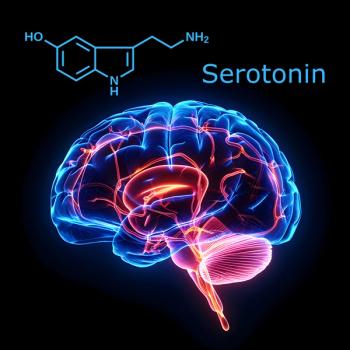
More Treatment Options for Schizophrenia, More Decisions About Which One to Choose | AMCP Nexus 2024
Meanwhile, newly approved Cobenfy and the long-acting injectable antipsychotics may help with the long-standing problem of nonadherence to schizophrenia treatment.
People with schizophrenia have a growing number of treatment options, including long-acting injectables and a newly approved antipsychotic that is the first one that doesn’t target dopamine receptors. But the array of choices is seeding some uncertainty about which treatment to select.
“[The recommendations] offer a long list of ways to select an antipsychotic but they aren't going to tell you which one's the best or which one to use first,” said Megan Ehret, Pharm.D., M.S., a professor at the University of Maryland School of Pharmacy and co-director of the Mental Health Program in the Department of Practice, Sciences and Health Outcomes Research there. “You don't have the clinical research to look at head-to-head with all of these various antipsychotics.”
Ehret was a panelist at session on schizophrenia yesterday at the Academy of Managed Care Pharmacy (AMCP) Nexus meeting in Las Vegas.
Ehret noted that the “positive” symptoms of schizophrenia, including delusions and hallucinations, are well known, but the full extent of the “negative” symptoms, such as lack of motivation, reduced speech output and flattened affect, aren’t as widely recognized. There are also cognitive symptoms. The disease can have negative consequences for physical health and on social relationships as well as mental health. People with schizophrenia contend with social isolation and stigma. One overall health consequence is a reduced life expectancy of 13 to 15 years due to factors such as poor dietary habits, weight gain, smoking and comorbid substance use.
For payers, schizophrenia poses the challenges of managing the costs associated with a condition with higher-than-usual rates of emergency room visits and inpatient hospitalizations. According to Catherine Cooke, Pharm.D., M.S., a research associate professor and a colleague of Ehret’s at the University of Maryland School of Pharmacy and a panelist at the yesterday’s session, said there is an excess cost of care annually per person with schizophrenia, with direct costs reaching an estimated $24,913, of which $15,957 is related to healthcare and $8,956 to costs outside of healthcare. In addition, there are the indirect costs from caregiving and loss of employment. Public payers bear most of the costs associated with schizophrenia, Cooke said. Of the patients with schizophrenia, approximately 19% are commercially insured, 43% are covered by Medicare, 35% by Medicaid, and 4% have no insurance, according to Cooke.
Adherence is a long-standing problem among people with schizophrenia. Ehret told the audience at the AMCP Nexus session that meta-analyses and large trials have produced evidence about discontinuation rates, but the studies vary in design so it is difficult to be certain about treatment algorithms. Long-acting injectable antipsychotics can help to reduce nonadherence they can be administered once every month, every six months or every year, depending on the drug. Examples of the long-acting antipsychotics include paliperidone, sold under Invega Sustenna and other brand names, and risperidone, sold under Perseris and other brand names
The cost impact of LAIs features a tradeoff, with pharmacy costs rising with the use, but medical decreasing because they are associated with fewer emergency room visit and hospitalizations. It reduces the odds of hospitalizations, causes fewer hospitalizations and emergency room admissions, but it has the highest per-patient-per year cost for the pharmacy. There are many opportunities for LAIs, including improved adherence and real-world data to support the efficacy and safety, but challenges can include accessibility for patients.
Ehret discussed other drug classes, including the TAAR1 agonists but noted that they did not have the desired effect. Nuplazid (pimavanserin), approved as a treatment for hallucinations and delusions associated with Parkinson’s disease psychosis, is under investigation. Researchers are also investigating glutamatergic modulators, including iclepertin and sodium benzoate, as possible schizophrenia treatments Iclepertin has demonstrated improvements in cognition for patients and sodium benzoate showed signals for improving cognitive symptoms, but did not have an effect on negative symptoms.
The FDA approved Cobenfy (xanomeline and trospium chloride), previously known as KarXT, in September 2024. It is the first antipsychotic to target muscarinic receptors instead of dopamine receptors. Data from clinical trials suggest that Cobenfy doesn’t have the side effects of drowsiness and weight gain that cause some people with schizophrenia to discontinue treatment. It has others, though, such as nausea, that could also lead to nonadherence.
Other muscarinic agents that may follow Cobenfy’s footsteps include emraclidine and NBI-1117568.
Newsletter
Get the latest industry news, event updates, and more from Managed healthcare Executive.

























